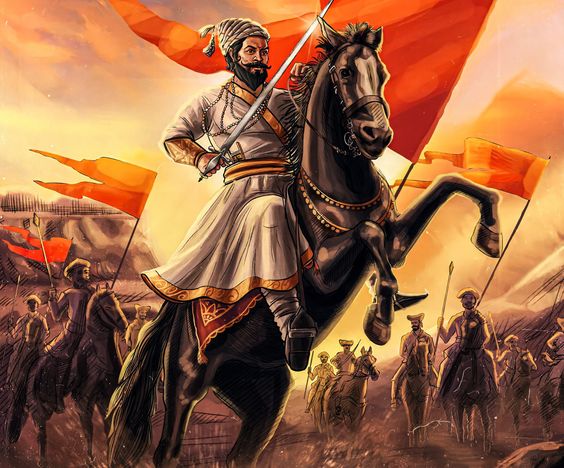Chatrapati Shivaji Maharaj
Father of Indian Navy
Intro
Shivaji,(born February 19, 1630, or April 1627, Shivner, Poona [now Pune], India—died April 3, 1680, Rajgarh), founder of the Maratha kingdom of India. The kingdom’s security was based on religious toleration and on the functional integration of the Brahmans, Marathas, and Prabhus.
Shivaji was descended from a line of prominent nobles. India at that time was under Muslim rule: 1. the Mughals in the north and 2. the Muslim sultans of Bijapur and 3. Golconda in the south. All three ruled by right of conquest, with no pretense that they had any obligations toward those who they ruled. Shivaji, whose ancestral estates were situated in the Deccan, in the realm of the Bijapur sultans, found the Muslim oppression and religious persecution of the Hindus so intolerable that, by the time he was 16, he convinced himself that he was the divinely appointed instrument of the cause of Hindu freedom —a conviction that was to sustain him throughout his life.
Independent Nation
In the summer of 1674, Shivaji had himself enthroned with great fanfare as an independent sovereign. The suppressed Hindu majority rallied to him as their leader. He ruled his domain for six years, through a cabinet of eight ministers. A devout Hindu who prided himself as the protector of his religion, he broke tradition by commanding that two of his relatives, who had been forcibly converted to Islam, should be taken back into the Hindu fold. Yet even though both Christians and Muslims often imposed their creeds on the populace by force, he respected the beliefs and protected the places of worship of both communities. Many Muslims were in his service. After his coronation, his most noteworthy campaign was in the south, during which he forged an alliance with the sultans and thereby blocked the grand design of the Mughals to spread their rule over the entire subcontinent
Religious toleration
The man that British politician and author Thomas Babington Macaulay (later Baron Macaulay of Rothley) called “the Great Shivaji” died after an illness in April 1680, in the mountain stronghold of Rajgarh, which he had made his capital. Shivaji breathed new life into a moribund race that for centuries had resigned itself to abject serfdom and led them against Aurangzeb, a powerful Mughal ruler. Above all, in a place and age stained by religious savagery, he was one of few rulers who practiced true religious tolerance
Father of Indian Navy
The conquest of forts was started by Chhatrapati Shivaji Maharaj, now known as father of the Indian Navy at the early age of 15 starting with the fort of Bijapur where he acquired the fort by bribing the commander and later got into conflict with Afzal Khan and killed him in a hand to hand combat. During a span of 35 years, the father of Indian Navy Chhatrapati Shivaji Maharaj Maharaj had conquered more than 300 forts.
The father of Indian Navy, Chhatrapati Shivaji Maharaj was known for his great military skills and realized the importance of the naval fleet after seeing the Portuguese arrival in India and starting and controlling trade on the western coast. The first keel of the Maratha naval base was built near Kalyan in the year 1654 after which multiple naval bases were constructed.
The Maratha navy consisted of 20 warships which were commanded by mostly mercenaries including the Portuguese and Siddi people. The first known event involving the Maratha navy was the battle of surat where the Maratha defend their coast against the English and Siddi and finally succeeded After Chhatrapati Shivaji Maharaj (father of Indian Navy), the navy was strong under the leadership of Kanhoji Angre who fought and was successful to stop the English and dutch from invading the coast but following the death of Angre, there was a rapid decline in Naval capabilities from the year 1729.

Chatrapati
Shivaji Maharaj
Jai Bhavani, Jai Shivaji